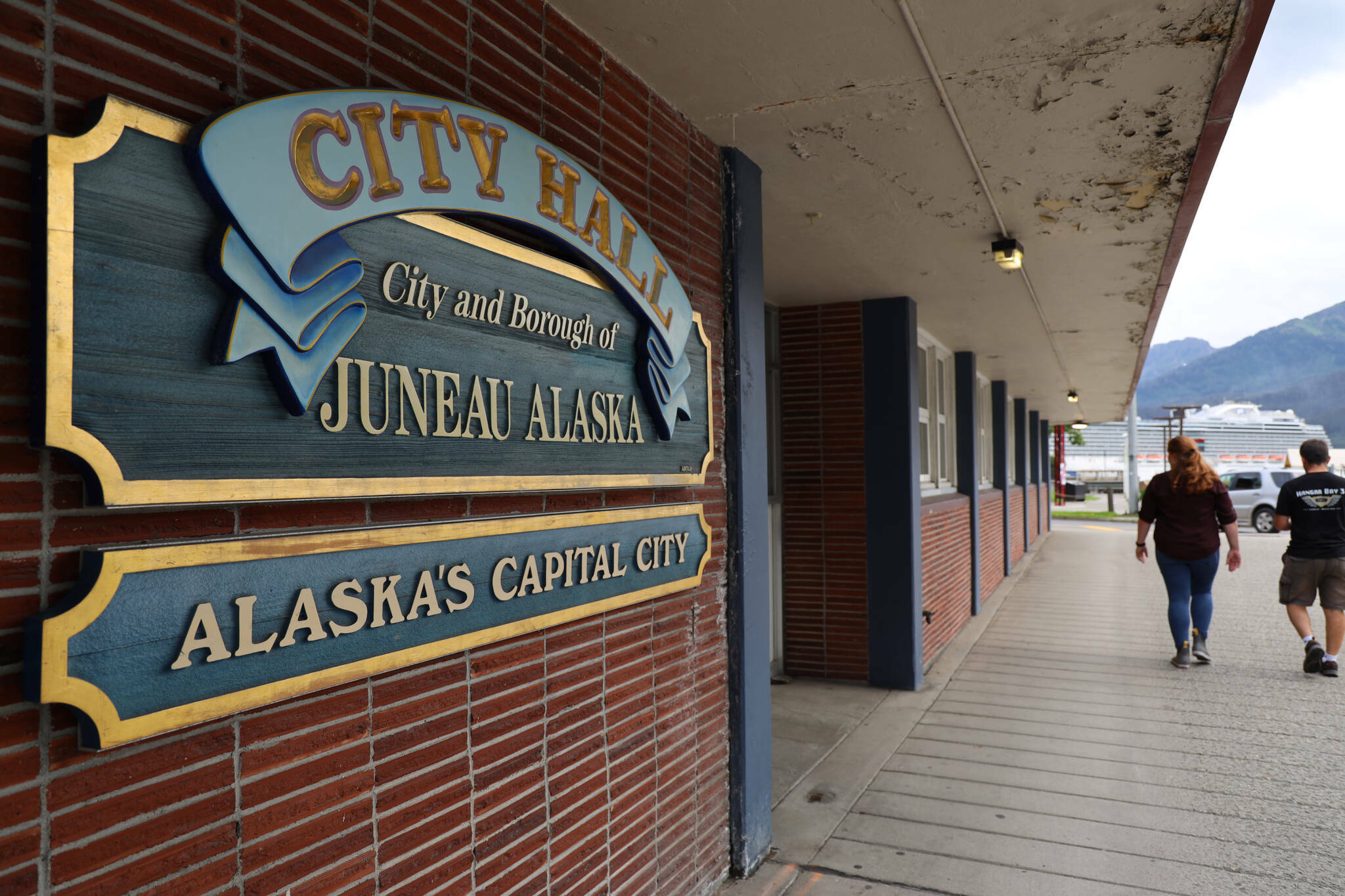This week, the CBJ Assembly decided to ask voters to approve a $27 million bond obligation for a new City Hall. Last month, they approved spending $50,000 before the election to “advocate for and provide public information” about the project. Both decisions were unanimous.
But that doesn’t make them right.
And the fact that Juneau voters rejected a similar bond proposal in last October’s municipal election doesn’t make the Assembly wrong. It lost by only 246 votes, with a dismal turnout of 32.9% and 18,700 registered voters not casting a ballot. That’s not a decisive defeat.
This time the Assembly has allocated $50,000 to better inform the public about the costs and benefits of the project. There’s been talk that it’s wrong for them to use taxpayer dollars to influence the outcome of an election. But this isn’t like taking sides on a contentious initiative sponsored by private citizens. They’ve always completely owned the pro-new City Hall position and should be able to spend some money to defend it.
Wade Bryson has been the most prominent Assembly member arguing the project is economically defensible. He claims CBJ will spend $12 million to $18 million on needed repairs and renovation to the current City Hall. That’s on top of annual lease payments for office spaces in multiple buildings, which he put in perspective last summer. “Out of all the things we do the worst is city hall — paying $1 million a year for a business that’s in business forever.”
I can relate to that from my experience managing facilities while working for the federal government.
In the 1990s, the Tongass National Forest was split into three administrative zones. The cost of the lease for the Forest Supervisor’s Office in Petersburg was so high that it equated to buying the building every three to four years, but having nothing to show for it. The situation wasn’t much better in Sitka.
A little more than a decade ago, the U.S. Coast Guard stood up Station Valdez. Because its crews are responsible for emergency response in local waters, their facilities require sleeping quarters. The property leased in Valdez was an incredibly poor fit for that, office space and boat maintenance. But that didn’t make the costs of leasing even close to being reasonable.
Like it was in all three of the Alaska cities above, wherever real estate is tight, building owners have the upper hand when negotiating lease terms. That’s especially true when a government agency can’t choose not to operate in such communities.
The owner of a private business has a very different decision matrix. If the community substantially supports their product or service, they’d either be looking for suitable facilities to purchase or vacant property to build on. If neither is economically available, they’d try passing on the expenses of a high-cost lease to their customers. And if that significantly reduced demand for whatever they’re selling, they’d consider packing up and leaving.
That’s just my perspective, tainted by limited experience and a preference to see voters approve the project. The Assembly needs to do a lot more.
The money they’re spending on formal advocacy should start with facts and data specific to the project. More important, to satisfy skeptical taxpayers, they should provide a detailed economic analysis prepared by a third party. If it doesn’t show that long-term ownership will be less costly than continued leasing, then they should consider allowing last year’s vote to be the final word.
Individuals and groups opposing the project are certainly free to challenge any evidence and conclusions CBJ puts out to the community. But they should back it up with more than rhetoric.
What we should avoid are baseless accusations meant to stir up anger and resentment. For instance, suggestions that CBJ might have raised property taxes to help pay for the project or offset the cost of their advocacy effort require real evidence, not mere speculation.
The irony is that’s the stuff that turns honest debate into a contentious fight, which in turn mobilizes more voters. But the only controversy we need to get people to the ballot box is the fact the Assembly didn’t like the outcome of the last election and now wants us to vote on it again.
• Rich Moniak is a Juneau resident and retired civil engineer with more than 25 years of experience working in the public sector. Columns, My Turns and Letters to the Editor represent the view of the author, not the view of the Juneau Empire. Have something to say? Here’s how to submit a My Turn or letter.

